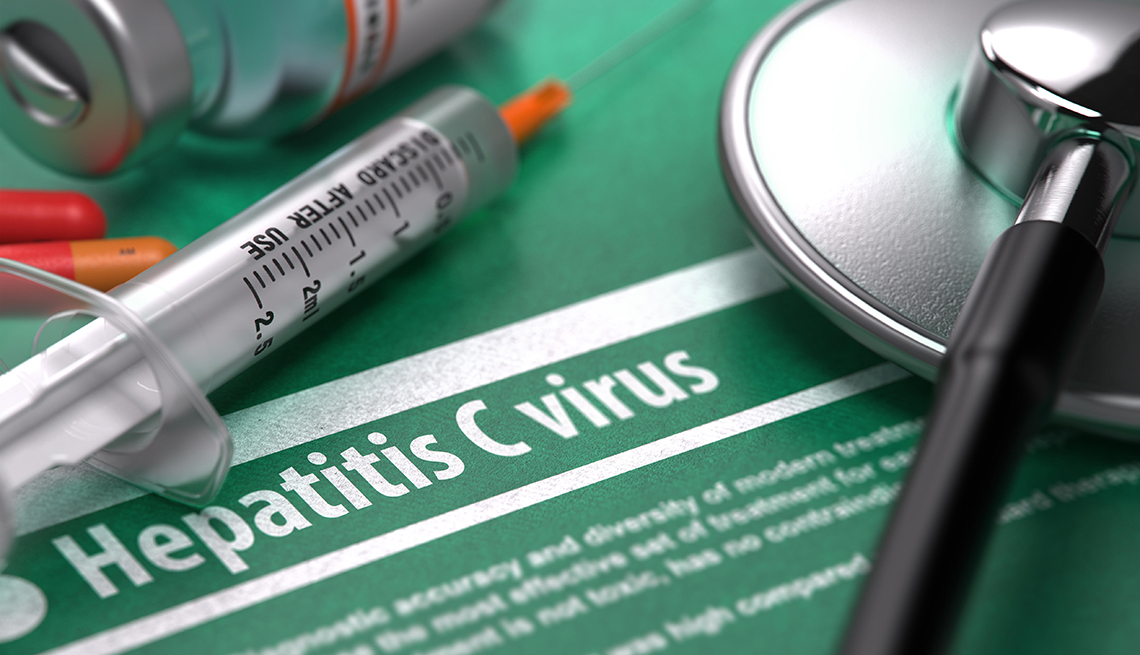What Boomers Should Know About Hepatitis C
Learn more about the risks and potential cures
by Kim Painter, AARP
-
©Jose Luis Pelaez Inc/Blend Images LLC
Get the Facts
En español | People born between 1945 and 1965 should take note: you are five times more likely to have liver-damaging Hepatitis C. The bad news is you may have no symptoms — at least a million boomers with the virus do not. But fortunately, new medicines have made this illness more treatable than ever, and a couple simple tests can tell you whether you have it or are in the clear.
1 of 11 -
Getty Images
Boomers are at higher risk
Boomers came of age when the hepatitis C virus (HCV) was spreading undetected through transfusions and other medical procedures — scientists only discovered it in 1989. Those who shared drug needles or got unsanitary tattoos and piercings increased their risk. So did those who snorted cocaine. (A mere drop of nasal blood on a shared rolled-up dollar bill could spread the virus.) The result: 1 in 40 boomers carry HCV. That’s about six times the chronic infection rate seen in the rest of the population, and it’s the reason the CDC and the U.S. Preventive Services Task Force now recommend HCV screening for the entire generation.
2 of 11 -
© Zoonar GmbH/Alamy Stock Photo
It is a dangerous family of viruses
Hepatitis C is one of
several viruses (others include hepatitis A and B) that harm the liver. Hepatitis A and B can be prevented with vaccines. But there’s no vaccine for HCV, the virus responsible for most chronic liver infections in adults. It’s the top cause of liver scarring (cirrhosis), liver cancer and liver transplants, and it kills 15,000 people in the United States each year, according to the federal Centers for Disease Control and Prevention (CDC).3 of 11 -
Getty Images
We have a safer blood supply
The blood supply has been screened for HCV since 1992, and health care providers have stepped up infection control efforts to prevent new cases, says John Ward, director of the Division of Viral Hepatitis at the CDC. Today, most of the 30,000 or so new infections reported each year are linked to needle sharing by drug users, he says. But, he adds, isolated outbreaks related to medical care still occur.
4 of 11 -
©Jose Luis Pelaez Inc/Blend Images LLC
It has ambiguous symptoms
About half of chronically infected people don’t know it, That’s because even those with advancing liver damage “can have mild symptoms or symptoms that are attributed to other things — feeling depressed, out of sorts, lack of energy, things you might attribute to aging,” says Ward.
5 of 11 -
Illia Uriadnikov / Alamy Stock Photo
Testing is simple
Finding out if you’re infected is as easy as having an HCV antibody test added to your next checkup. If the results are positive, it means you were infected with HCV at some point. You will need a second blood test right away to find out if the virus is still in your system. If the second test is negative, your worries are over: Your infection is gone and probably cleared up on its own years ago, as 15 to 25 percent of cases do.
6 of 11 -
Istockphoto
AARP Offer: Healthy Living Tips and News
Sign up for the AARP Your Health Newsletter to receive tips, tools and news to help you live life to the fullest. By joining AARP today, you can also save on health and wellness products and services.
7 of 11 -
Maarten Wouters/Getty Images
You can pass it to others — though not easily
It is not easy to spread HCV in a household, and you will not get it through kissing and hugging, the CDC says. Even transmission through sexual intercourse is rare, though the risk is heightened among men who have sex with men, Ward says. Still, it’s always a good idea to avoid contact with even small amounts of blood, so you should not share razors or toothbrushes. And if you are a woman who’s ever given birth and you learn you have HCV, you should know there’s a small chance your children could have been infected too.
8 of 11 -
Getty Images
There are new successful treatments
Not many years ago, an HCV diagnosis came with a second blow: Treatments often did not work and could cause many months of fevers, fatigue, irritability, anemia and other side effects. Then, in 2013, the Food and Drug Administration started approving a new generation of medications that, in studies and in real-world use so far, cure well over 90 percent of patients, often in eight to 12 weeks and with few side effects, says Douglas Dieterich, a professor at New York’s Mt. Sinai School of Medicine who specializes in gastroenterology and liver disease. “It’s unbelievably curable.”
9 of 11 -
Getty Images
Medicare and some insurers pay for treatment
The newer drugs were so expensive when they came on the market that insurers initially refused to pay until patients already had advanced liver damage, Dieterich says. Medicare has been an exception, he says, and private insurers now seem to be reconsidering their stances. Professional groups representing the doctors who treat HCV say that everyone with the virus, with or without liver damage, should be treated immediately. In the long run, that will save money and lives, Dieterich says.
10 of 11 -
Getty Images
View More Slideshows
Member Discounts! Save on eye exams, prescription drugs, hearing aids and more11 of 11











